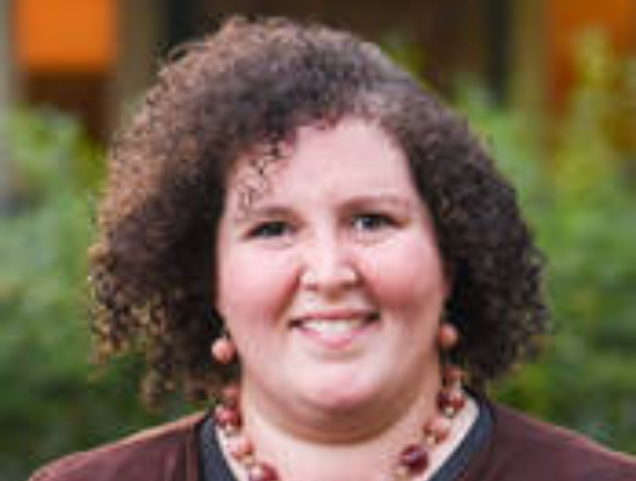I'm a conservative Catholic mom. 'Trad wives' promote unrealistic stereotypes.
“Trad wives," Generation Z and millennial "traditional wives" who are mostly conservative Christians, have proliferated on social media − drawing almost 187 million views on TikTok. They also have stoked predictable controversy because of their embrace of old fashioned feminine ideals such as submissiveness to husbands and stay-at-home motherhood.
I am a wife and mother in what most observers would see as a traditional marriage. My husband and I got married 10 years ago, when we were 25 and 26. He is the primary breadwinner, and I am the primary caregiver for our three children. We go to Mass every Sunday, send our kids to parochial school and teach our sons never to hit girls, even if they hit you first (we have no such prohibition on striking back at other boys).
Yet, the curation of a “trad wife” identity among increasing numbers of my fellow mothers raising similarly traditional families troubles me because it unhelpfully pigeonholes our cultural conceptions of both sexes.
The idea that a woman’s place is always in the home is out of touch for everyone except a small cadre of wealthy and overwhelmingly white elites.
What is a 'trad wife'? These controversial women are drawing attention – and opinions
Women have traditionally earned income to help families
The truth is that women’s contribution to economic production is the historical rule, not an invention of 1960s feminism. Before the industrial revolution, all but the wealthiest women participated in the primarily agricultural economy. The Puritan work ethic, which valorized labor as godly, reigned for men and women alike.
To cast as “traditional,” women’s sole focus on domesticity and child-rearing is ahistorical. It wasn't until America industrialized in the 1800s, and labor moved off of farms and into cities, that middle- and upper-class white women whose husbands earned enough to support their families began to define “ladyhood” as synonymous with distance from production.

Meanwhile, Black women, Irish immigrant women and poorer white women without the financial security to focus their attention solely on homes were excluded from this new definition of femininity.
By the late 1800s, this distinctly modern ideal of womanhood that captivates today’s trad wives was inextricable from whiteness and male-produced wealth.
Abortion in the state constitution? After Roe, abortion activists are targeting state constitutions. Next up? Ohio.
'Trad wife' model isn't practical in today's economy
In short, being a trad wife is anything but traditional. It's also not a viable model for marriage or family formation in a nation where women are primary breadwinners in 42% of families and co-breadwinners in 22% of households, and where many men struggle to find professional footing in a post-industrial economy.
If practitioners and proponents of traditional family formation (myself included) actually want to encourage and valorize younger marriage, married child-bearing and larger families in today’s world, we need to recognize that fluidity between the sexes with respect to primary breadwinning is here to stay – and, crucially, that this in no way erases the biological or psychological differences between women and men, mothers and fathers.
Help save America's kids: Drugs and untreated mental health issues are killing children. You can help stop it.
My mother was my family’s primary breadwinner when I was a small child. She remained my mother and exuded all of the maternal virtues attendant to that role. That my father spent more time with toddler-age me did not change this.
A dear friend of mine – a feminine, maternal woman married to a prototypically masculine, paternal man – is her young family’s primary breadwinner. Her husband is the primary caregiver and a co-earner. By any measure, their arrangement, like that of my parents 35 years ago, is far more traditional than any situation in which one partner contributes little to nothing to the family economically.
That both of these women are maternal is altered not at all by their breadwinning status, just as many agrarian matriarchs were no doubt both highly feminine and very busy on the farm.
Opinion alerts: Get columns from your favorite columnists + expert analysis on top issues, delivered straight to your device through the USA TODAY app. Don't have the app? Download it for free from your app store.
Married motherhood and the traditional family are on the verge of obsolescence. That imperils all of our children, and the future of the nation.

Those of us who value the two-parent family should invest in widening its appeal, not doing the opposite by crediting an exclusionary ideal with unearned and impractical merit.
Elizabeth Grace Matthew is a visiting fellow at Independent Women’s Forum and a Young Voices contributor.
You can read diverse opinions from our Board of Contributors and other writers on the Opinion front page, on Twitter @usatodayopinion and in our daily Opinion newsletter. To respond to a column, submit a comment to letters@usatoday.com.
This article originally appeared on USA TODAY: Trad wife life not just controversial, it doesn't make economic sense

